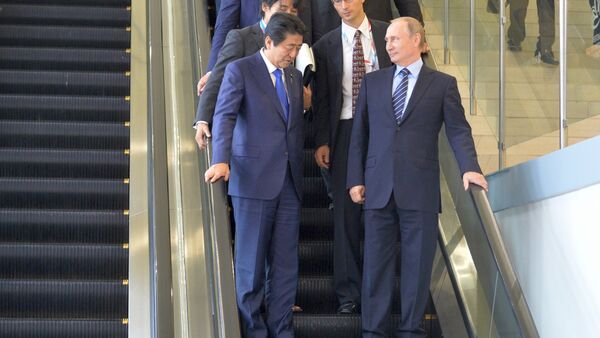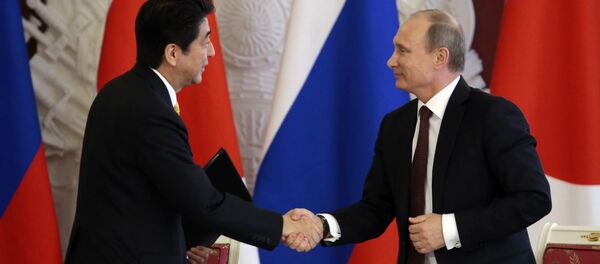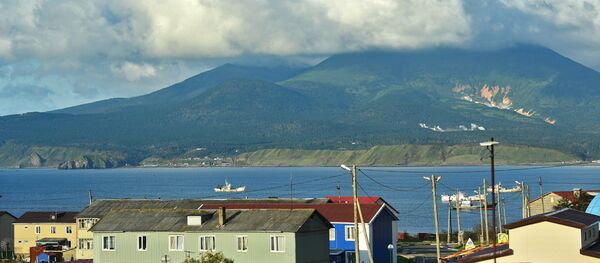Verkhoturov recalled that Japan, which was a military ally and one of the main economic partners of the US for decades, now finds itself at an impasse.
The past 20 years have seen a "very slow economic growth" in Japan, he noted, referring to prominent Japanese economist Takatoshi Ito who attributed the current economic situation in his country to the so-called 1985 Plaza Accord.
Under the deal, Japan, along with other US partners agreed to help Washington rectify its trade deficit balance by increasing the yen rate, something which led to Japanese manufacturers losing their competitive position in the markets and yielding to Americans.
Furthermore, Japan, which was heavily restricted in terms of military development after World War II, relied on the United States in terms of security.
"However, the US's current policy in the South-Pacific region not only fails to guarantee Japan's security but also adds to Japan being drawn into a war," Verkhoturov pointed out, citing North Korea's nuclear ambitions and Washington's inability to contain Pyongyang.
As for Tokyo's relations with Russia, Japan can benefit significantly from developing these ties, Verkhoturov noted, referring to the possibility of increasing exports needed to revive the Japanese economy and Tokyo's access to raw materials, including oil and gas, at a reasonable price.
"Of course, this view can be considered extravagant, but it explains why the Russian-Japanese negotiations and preparation for Putin's visit are in full swing, despite the fact that Abe and Putin earlier expressed diametrically opposite views over the Kuril issue," according to Verkhoturov.
He recalled that speaking at the Japanese parliament earlier this month, Abe promised that he would seek the four islands within the framework of dialogue and economic cooperation, while Putin said that Russia does not trade in its territory.
Meanwhile, some Russian experts believe that President Vladimir Putin's visit to Japan in December may represent the "last chance" for Moscow and Tokyo to resolve the 71-year-old Kuril Islands territorial dispute and sign a peace treaty.
Japan and Russia never signed a permanent peace treaty after World War II due to a disagreement over four islands which Russia calls the Southern Kurils and Japan refers to as the Northern Territories: Iturup, Kunashir, Shikotan and Habomai.





